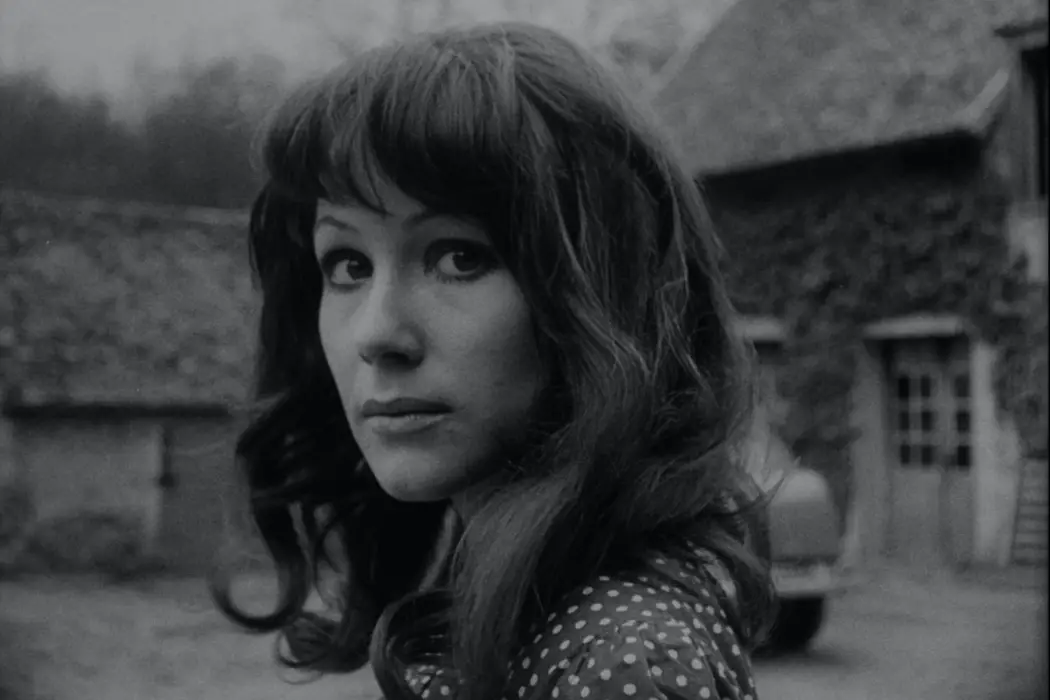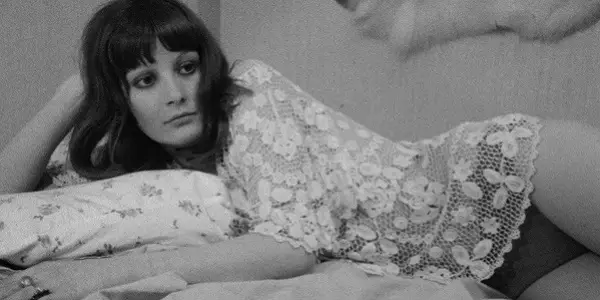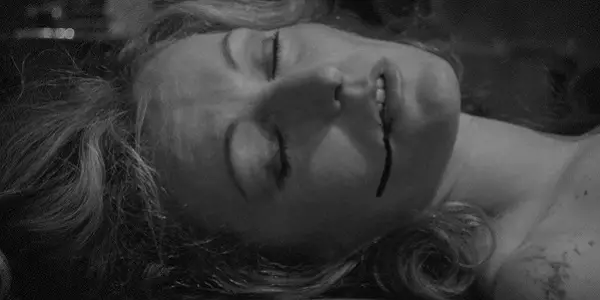A WOMAN KILLS: A Newly Unearthed Cinematic Time Capsule

Lee Jutton has directed short films starring a killer toaster,…
Written and directed by Jean-Denis Bonan, A Woman Kills is a serial killer thriller with an undercurrent of protest running just beneath its surface. Shot against the backdrop of the strikes, demonstrations, and occupations of the May 68 movement, the film depicts twentieth-century France as a dystopia, populated by the disaffected and the damned and perpetually surveilled by the powers that be. So it’s not necessarily a surprise that A Woman Kills was never released — or even finished — after it was first shot. Without the money necessary to complete the film after distributors declined to take a chance on the initial cut, Bonan moved on to other projects, leaving the film to languish in obscurity for decades.
But in 2010, the unfinished film was programmed by filmmaker and writer Jean-Pierre Bastid at the Cinémathèque française for a series entitled “Anarchy and Cinema,” and thus came to the attention of Francis Lecomte at Luna Park Films. Lecomte convinced Bonan to finish the film, and as a result, the definitive, completed cut of A Woman Kills was finally unleashed upon the world. Soon to be available in the form of a limited edition Blu-ray from Radiance Films, it’s a strange, surreal film that bears the influence of filmmakers such as Lang, Hitchc*ck, and Godard even as it stands out from its forebearers with a nasty, singular smirk.
The Not-So-Merry Month of May
Shot on location in the labyrinthine streets of Paris’ Pigalle neighborhood, A Woman Kills begins in the aftermath of serial killer Hélène Picard’s execution. The film’s brusque voiceover informs us that even though Picard was executed in March 1968, gruesome murders of prostitutes in the same style as those of which she was convicted have continued into May. The investigation into these ongoing crimes brings two unlikely figures together: Louis Guilbeau (Claude Merlin), the executioner responsible for sending Picard to her ultimate fate, and Solange Labas (Solange Pradel), the police investigator who helped catch Picard in the first place and is now wondering if they arrested and executed the wrong person.

A Woman Kills has the dry, dossier-like narration of a true crime documentary — and also includes some talking heads segments in which various self-absorbed citizens of Pigalle are asked for their opinions on the “sadist” stalking their streets — but that is the extent to which the film’s narrative is anything approaching straightforward. The true nature of Louis and Solange’s relationship remains vague, their scenes together depicted in a dreamlike way that almost suggests it might all be a fantasy. The moving camera of cinematographer Gérard de Battista often stalks the killer’s victims through the shadowy streets, infusing the film with a sense of paranoid unease that doesn’t even let up once we learn who the killer is – which, to be quite frank, is too obvious to be truly shocking. Yet A Woman Kills is such a fascinating film from a stylistic perspective that it’s easy to forgive it for such storytelling weaknesses.
Psycho Killer, Qu’est-ce Que C’est?
Despite only being shot over the course of twelve days with a minimal budget, A Woman Kills is both visually and sonically stunning. It boasts a brilliant avant-garde jazz score, courtesy of Bernard Vivet, that amps up the tension through shrieking saxophones and howling horns; songs by Daniel Laloux include witty lyrics that comment wryly on the action of the film and the unpleasant energy of mid-Sixties Paris. The murder scenes feel like precursors to some of the best gialli, disturbing in their brutality and generous with their blood. A climactic sex scene is shot from below, through the springs of the bed, giving one the sense that the bodies involved are tangled and trapped in the wires, unable to escape their ultimate fates.

Throughout it all, Bonan ensures that we don’t forget that A Woman Kills is not just a stylish thriller, but a commentary on the particular political moment in which it exists: Louis is embittered from his military service in Algeria, a young man says that the sadist doesn’t bother him because the violence has nothing to do with the student movement, and the police are ever-present, wielding their power in increasingly heavy-handed ways, attempting and failing to keep some kind of peace that doesn’t really exist.
Yet one cannot ignore another signifier of the specific time in which A Woman Kills was shot: the film’s dated treatment of queerness as some sort of signifier of deviance. Picard’s purported homosexual activities are cited in her criminal dossier, and the eventual reveal of the killer is one that — without spoiling too much of the story — cements the film as an “unexpected and grossly belated entry into the serial-killers-with-gender-issues canon.” That line comes from the enlightening essay by critic Cerise Howard included with the film’s Blu-ray release, which breaks down the historical and cinematic context in which A Woman Kills was made, the many monstrous depictions of gender non-conforming characters in movies that followed in the latter half of the twentieth century, and the ways such depictions have stigmatized transgender people in society. Needless to say, Howard’s piece is a must-read — and it’s just one of several fascinating essays included in this robust Blu-ray booklet.
Conclusion
As a cinematic time capsule of one of the most famous periods of civil unrest in French history, A Woman Kills is worth (re)discovering… even if its most problematic aspects should be taken, as Howard puts it, with a large grain of salt.
The limited edition Blu-ray of A Woman Kills will be released by Radiance Films on February 7, 2023.
Watch A Woman Kills
Does content like this matter to you?
Become a Member and support film journalism. Unlock access to all of Film Inquiry`s great articles. Join a community of like-minded readers who are passionate about cinema - get access to our private members Network, give back to independent filmmakers, and more.
Lee Jutton has directed short films starring a killer toaster, a killer Christmas tree, and a not-killer leopard. Her writing has appeared in publications such as Film School Rejects, Bitch: A Feminist Response to Pop Culture, Bitch Flicks, TV Fanatic, and Just Press Play. When not watching, making, or writing about films, she can usually be found on Twitter obsessing over soccer, BTS, and her cat.












